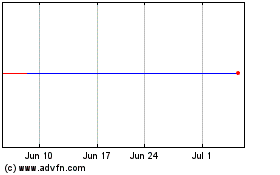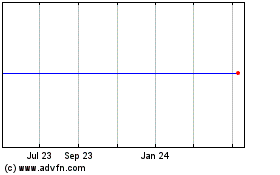US Judge Holds Hearing On How To Implement Tobacco Restrictions
September 15 2010 - 11:50AM
Dow Jones News
The Justice Department and the tobacco industry returned to
court Wednesday to begin sorting out how to implement restrictions
imposed on cigarette makers in 2006 after a U.S. judge found the
companies violated federal racketeering laws.
The industry's unsuccessful challenge to the racketeering ruling
ended in June when the U.S. Supreme Court refused to consider the
case.
Now, the trial judge who ruled against Big Tobacco, U.S.
District Court Judge Gladys Kessler in Washington, is considering
how carry out the remedies she ordered.
In a 2006 opinion that logged 1,653 pages, Kessler ordered a
variety of marketing, sales and advertising restrictions on the
tobacco industry. Kessler also required cigarette makers to issue
corrective statements about the dangers of their products, which
would appear on television, newspapers, product packaging and
countertop displays in retail outlets.
Questions about the content of those corrective statements and
where they will appear have yet to be resolved.
Justice Department attorneys said at Wednesday's hearing that
significant work remained to be done on that issue.
Another matter that must be addressed is how Kessler's
restrictions are affected by the 2009 law that gave the Food and
Drug Administration the authority to regulate tobacco products.
The Justice Department argued in court papers that Kessler's
restrictions on the tobacco industry are important and
necessary--and are unaffected by last year's law.
The industry views the issue differently, arguing that if
Kessler doesn't alter or withdraw the remedies she imposed, tobacco
companies will face two different regulators controlling their
marketing and promotional practices.
Kessler on Wednesday gave the parties two months to discuss the
issues before filing a report with her court on Nov. 24. The judge
scheduled another hearing for Dec. 20.
Lawyers for the parties said they hope to resolve several issues
through informal discussions and without the need for court
intervention.
The long-running case dates back to 1999, when the Clinton
administration alleged that nine tobacco companies and two related
trade associations engaged in a 50-year conspiracy to deceive the
public about the dangers of smoking. A nine-month trial took place
in 2005.
Defendants in the case include Altria Group Inc.'s (MO) Philip
Morris subsidiary; Reynolds American Inc.'s (RAI) R.J. Reynolds
Tobacco Co.; British American Tobacco (Investments) Ltd., a
subsidiary of British American Tobacco PLC (BTI); and Lorillard
Tobacco Co., a unit of Lorillard Inc. (LO).
-By Brent Kendall, Dow Jones Newswires; 202-862-9222;
brent.kendall@dowjones.com
Reynolds (NYSE:RAI)
Historical Stock Chart
From Aug 2024 to Sep 2024

Reynolds (NYSE:RAI)
Historical Stock Chart
From Sep 2023 to Sep 2024
